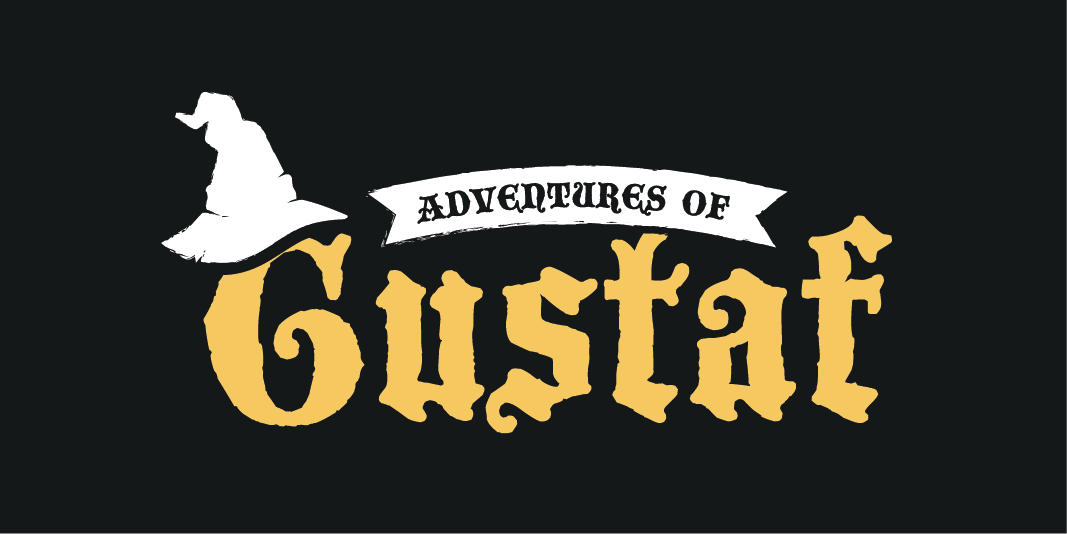
He was a thin man, already quite bald, wearing a blue tunic with some golden details. He stared at the hat with an expression that perfectly mixed disinterest and discontent. Seeing him like that, you wouldn’t be able to tell, but this man was once capable of smiling.
— Don’t you like it, Gustaf? I thought this hat was incredible. As I always say, “An imposing hat is the first step to being a respected mage.”
— And here I thought the first step to being a respected mage was, you know, being able to cast spells and whatnot.
— Calm down, you’ll get there; you still have time.
— Derigon, I am literally 20 years older than your second-oldest apprentice.
It was a deep purple hat, almost black, like the night sky, pointed, as a mage’s hat should be, with two jewels attached where the brim began on the left side. Gustaf tried on the hat; the long brim made a subtle arc, falling slightly on one side, covering part of his face and giving him a mysterious air. Indeed, he now looked like a mage. Derigon watched it all with a big smile, clapping his hands.
— Magnificent! Magnificent!
Standing there like a mannequin, watching his master clap with a smile on his face, something broke inside him. Years of frustration finally surfaced. He remembered when he was just the son of a local bigwig; they had a small mansion and two or three serfs. Things made more sense back then. But Gustaf was not good at business and always argued with his parents. Like any good teenager, he eventually fell in love and ran away from home, not necessarily in that order. And like any good teenager, he returned home after a few days, but in his case it was only to be sent away. He went to live with the mage Derigon, who had agreed to take him as an apprentice. To be honest, Derigon didn’t need another apprentice, and that skinny, clumsy boy didn’t seem to have a single magical molecule in his body, but Derigon liked people and liked it when people liked him back. Saying “no” usually meant displeasing someone, and Derigon didn’t care for that.
In the tower, Gustaf was the oldest and least talented of many boys, and so he remained until his late 30s. Eventually, he became a sort of caretaker of the tower as well, cleaning the kitchen, and tidying up the messes the other apprentices made with their magic. He knew he had no arcane talent, he knew that Derigon knew, and though Derigon never asked for anything, it just seemed right to do what he could in exchange for food, bed, and shelter. It wasn’t beneath him; he had never had to do any real work, and the other apprentices always laughed at him anyway, even when he was just two years older than the rest of the class, which was about twenty years ago. Once, Gustaf came into his room after a day of buying supplies for everyone in the tower and someone had replaced the broom handle with his staff. If he weren’t so pragmatic, if instead of immediately removing his staff and starting to look for the original broom handle, he had stopped to contemplate the scene, he might have even seen the comedic potential of the prank. I could spend the day listing the humiliations he suffered over the years at the hands of the other apprentices or the populace of the City as a whole, but that’s not what’s important in Gustaf’s story.
Something about Derigon’s smile, with not a hint of condescension, his enthusiastic clapping, and the silent agreement of the tailor, was the last straw. Gustaf knew exactly what he had to do and who would help him do it. Like that repeat student in your seventh-grade class, Gustaf also knew things; he knew things in a dumb way, but the most innocent of the apprentices ended up respecting this… wisdom. And that particular repeat student had also been the school janitor for the past ten years. He knew where everything was in that tower, and he was going to use that knowledge, in an even dumber way than usual. Alain and Yannick spoke their parts perfectly, the scent of flowers invaded the attic that had been crudely adapted into a room. For a few years now, it hadn’t been appropriate for an adult man to share a dormitory with children who hadn’t even reached puberty. But Gustaf liked the solitude and privacy; there he could be alone with his thoughts and read about the things that interested him in the outside world. Basically, all the non-magical books in the tower belonged to Gustaf. It might seem surprising, but mages generally have a certain disdain for worldly knowledge. Gustaf, however, was curious and could not afford to scorn things as the other mages did.
Finally, his time came, and Gustaf spoke his part of the ritual. An explosion of colors and scents invaded the room; Alain and Yannick immediately fainted. Gustaf did not. Ironically, his magical ineptitude protected him. He was incapable of experiencing at least 50% of the colors and scents that flooded the room, precisely the 50% that had caused all the mages who had tried the ritual before him to faint. The downside was that Gustaf did not faint; he was awake for the whole thing, and the human sensory system simply is not prepared for what was happening there. By any objective measure one might use, Gustaf was going through the worst migraine in the history of humanity(…)